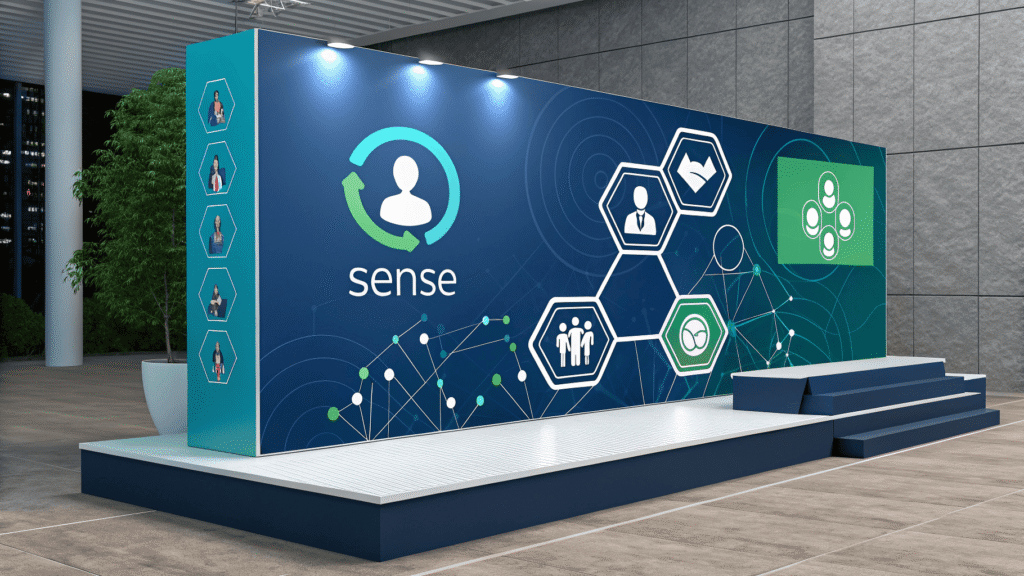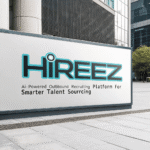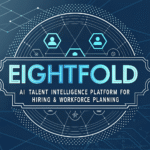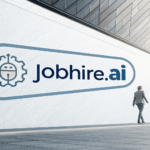
Staffing and recruitment teams face mounting pressure to deliver results in an increasingly competitive talent market. Traditional applicant tracking systems (ATS) that once seemed adequate now feel outdated and limiting. Sense The industry is experiencing a fundamental shift towards talent engagement platforms comprehensive solutions that transform how staffing agencies and recruitment teams attract, engage, and retain top talent.
This evolution represents more than just a technology upgrade. It’s a strategic response to changing candidate expectations, evolving market dynamics, and the need for more sophisticated recruitment approaches. Understanding the capabilities and benefits of talent engagement platforms like Sense can help staffing professionals stay ahead of the curve and deliver exceptional results for their clients.
Modern recruitment demands tools that go beyond basic applicant tracking. Today’s successful staffing teams need platforms that create meaningful connections with candidates, automate complex workflows, and provide deep insights into recruitment performance. This shift reflects broader changes in how people search for jobs and what they expect from potential employers.
What Are Talent Engagement Platforms?
Talent engagement platforms represent the next generation of recruitment technology, designed specifically to address the limitations of traditional ATS systems. Sense Whilst applicant tracking systems focus primarily on managing applications and basic candidate data, talent engagement platforms create comprehensive candidate experiences that extend throughout the entire recruitment lifecycle.
These platforms combine multiple recruitment functions into unified systems that support everything from initial candidate sourcing to long-term talent relationship management. The integration of communication tools, automation capabilities, and analytics creates a more holistic approach to recruitment that benefits both staffing teams and candidates.
Beyond Traditional ATS Limitations
Traditional applicant tracking systems often create siloed experiences that fragment candidate interactions across multiple touchpoints. Sense Talent engagement platforms address these limitations by providing unified candidate profiles that capture all interactions, preferences, and engagement history in one centralised location.
The communication capabilities of talent engagement platforms far exceed basic email functionality found in traditional ATS systems. Advanced messaging features, automated follow-ups, and personalised communication sequences help staffing teams maintain consistent contact with candidates throughout extended recruitment processes.
Comprehensive Candidate Relationship Management
Modern talent engagement platforms function as customer relationship management (CRM) systems specifically designed for recruitment. They track candidate preferences, communication history, and engagement patterns to help staffing teams build stronger relationships with potential hires.
This relationship-focused approach proves particularly valuable for staffing agencies that maintain ongoing relationships with candidates across multiple job opportunities. The platform’s ability to track candidate career progressions and changing preferences enables more targeted and effective outreach efforts.
Key Features of Sense
Advanced Communication Automation
Talent engagement platforms excel at automating complex communication sequences whilst maintaining personalisation. These systems can send targeted messages based on candidate behaviour, job preferences, and engagement history, ensuring that outreach efforts remain relevant and timely.
Automated follow-up sequences ensure that no candidate falls through the cracks, particularly important for staffing agencies managing large candidate pools across multiple clients. The platform can trigger personalised messages based on specific candidate actions or timeline milestones.
Multi-Channel Candidate Engagement
Modern candidates expect to interact with potential employers across multiple communication channels. Talent engagement platforms support email, SMS, social media, and even voice communications through integrated systems that maintain conversation continuity across all touchpoints.
This omnichannel approach ensures that staffing teams can reach candidates through their preferred communication methods whilst Sense maintaining comprehensive records of all interactions. The platform’s ability to track engagement across channels provides valuable insights into candidate preferences and response patterns.
Intelligent Candidate Matching
Advanced matching algorithms analyse candidate profiles, preferences, and historical data to identify optimal job opportunities. These systems go beyond simple keyword matching to consider factors like career progression goals, cultural fit indicators, and long-term potential.
The matching capabilities extend to identifying candidates who might be suitable for future opportunities, enabling staffing teams to build talent pipelines for anticipated client needs. This proactive approach to candidate management provides competitive advantages in fast-moving markets.
Performance Analytics and Insights
Comprehensive analytics capabilities provide staffing teams with detailed insights into recruitment performance, candidate engagement patterns, and pipeline health. These metrics enable data-driven decision-making that improves recruitment outcomes over time.
The analytics extend beyond basic metrics to include candidate satisfaction scores, engagement quality measures, and predictive indicators of placement success. This depth of insight helps staffing teams optimise their processes and focus efforts on the most promising opportunities.
The Business Impact of Talent Engagement Platforms
Improved Candidate Satisfaction
Talent engagement platforms significantly enhance candidate experiences through more personalised interactions, faster response times, and greater transparency throughout the recruitment process. Candidates appreciate consistent communication Sense and clear status updates that keep them informed and engaged.
The platform’s ability to remember candidate preferences and tailor communications accordingly creates more positive impressions that strengthen employer brand reputation. This improved candidate experience often translates into higher acceptance rates and positive referrals.
Enhanced Recruiter Productivity
Automation capabilities free recruiters from routine administrative tasks, allowing them to focus on high-value activities like relationship building and strategic planning. The platform’s workflow automation can handle everything from initial candidate outreach to interview scheduling and follow-up communications.
Time savings from automated processes enable recruiters to manage larger candidate pools more effectively whilst maintaining quality interactions. This increased capacity allows staffing teams to take on more clients or provide more comprehensive services to existing clients.
Better Client Outcomes
The comprehensive candidate management capabilities of talent engagement platforms enable staffing teams to provide better service to their clients. Faster placements, higher-quality matches, and improved candidate retention rates directly benefit client organisations.
The platform’s analytics capabilities provide clients with valuable insights into recruitment performance and market trends. This data can inform strategic workforce planning and help clients make more informed hiring decisions.
Competitive Advantages
Staffing agencies using talent engagement platforms often gain significant competitive advantages through faster response times, more personalised service, and superior candidate experiences. These factors become increasingly important as clients expect higher service levels and better outcomes.
The platform’s ability to maintain long-term candidate relationships creates valuable talent networks that competitors cannot easily replicate. This relationship-based approach provides sustainable competitive advantages in crowded markets.
Implementation Strategies for Staffing Teams
Assessment and Planning
Successful implementation begins with thorough assessment of current recruitment processes and identification of specific improvement opportunities. Teams should evaluate their existing technology stack, workflow patterns, and performance metrics to establish baseline measurements.
The planning phase should include clear goals for platform implementation, timeline expectations, and success metrics. This preparation ensures that the transition to a talent engagement platform delivers measurable improvements rather than simply replacing existing systems.
Team Training and Adoption
Comprehensive training programmes ensure that all team members understand how to leverage the platform’s capabilities effectively. Training should cover not only technical features but also best practices for candidate engagement and relationship management.
Change management strategies help teams adapt to new workflows and communication patterns. Regular feedback sessions and performance monitoring ensure that adoption progresses smoothly and that any issues are addressed promptly.
Integration with Existing Systems
Talent engagement platforms should integrate seamlessly with existing business systems including payroll, invoicing, and client management platforms. These integrations ensure that data flows smoothly across all business functions without creating additional administrative burden.
The integration process should include data migration from existing systems and establishment of ongoing data synchronisation processes. Proper integration prevents information silos and ensures that all team members have access to current candidate and client information.
Continuous Optimisation
Implementation represents just the beginning of the journey towards optimised recruitment operations. Teams should continuously monitor performance metrics, gather feedback from candidates and clients, and adjust their approaches based on results.
Regular system updates and feature additions provide opportunities to enhance recruitment capabilities over time. Staying current with platform developments ensures that staffing teams continue to benefit from technological advances and industry best practices.
Measuring Success with Talent Engagement Platforms
Key Performance Indicators
Time-to-fill metrics typically improve significantly with talent engagement platforms due to faster candidate identification and more efficient communication processes. Quality-of-hire measurements often show improvement as better matching algorithms and comprehensive candidate profiles lead to more successful placements.
Candidate Sense satisfaction scores provide valuable insights into the effectiveness of engagement strategies. Higher satisfaction scores often correlate with improved placement success rates and increased referral activity.
Long-term Impact Assessment
Beyond immediate efficiency gains, staffing teams should evaluate how talent engagement platforms affect client retention, candidate loyalty, and overall business growth. These longer-term metrics provide insight into the true value of platform investment.
Revenue per recruiter often increases as talent engagement platforms enable individual team members to manage more clients and candidates effectively. This productivity improvement directly impacts profitability and growth potential.
Return on Investment Analysis
Comprehensive ROI analysis should include both direct cost savings from automation and indirect benefits like improved client satisfaction and increased placement rates. The analysis should also consider the competitive advantages gained through superior candidate experiences.
Most staffing agencies see positive ROI within 6-12 months of implementation, with benefits continuing to compound over time as teams become more proficient with the platform and candidate networks grow.
Future Trends in Talent Engagement
Artificial Intelligence Integration
AI capabilities are becoming increasingly sophisticated, with new applications including predictive analytics for candidate career progression, automated video interview analysis, and intelligent job matching based on subtle preference indicators.
Machine learning algorithms will continue to improve their ability to identify successful candidate-job matches, reducing placement failures and improving long-term retention rates. These advances will make talent engagement platforms even more valuable for staffing teams.
Enhanced Candidate Experience Features
Future developments will likely include more sophisticated mobile applications, virtual reality job previews, and personalised career development tools that help candidates advance their careers whilst maintaining relationships with staffing agencies.
The integration of social media and professional networking features will create more comprehensive candidate profiles and enable more effective relationship management across extended professional networks.
Advanced Analytics and Reporting
Predictive analytics capabilities will expand to include market trend analysis, salary benchmarking, and workforce planning insights that help both staffing agencies and their clients make more informed decisions.
Real-time reporting capabilities will provide immediate insights into recruitment performance, enabling rapid adjustments to strategies and tactics based on current results.
Maximising Your Recruitment Potential
Talent engagement platforms represent a fundamental shift in how staffing and recruitment teams approach their work. By focusing on relationship building, automation, and Sense data-driven decision making, these platforms enable superior results for both candidates and clients.
The key to success lies in understanding that talent engagement platforms are not just technology upgrades—they represent new approaches to recruitment that prioritise candidate experience and long-term relationship building. When properly implemented, these platforms create sustainable competitive advantages that drive business growth and improve outcomes for all stakeholders.
Staffing teams considering talent engagement platforms should evaluate their current challenges, assess their growth objectives, and choose solutions that align with their specific needs and market conditions. The investment in modern recruitment technology typically pays dividends through improved efficiency, better client outcomes, and enhanced competitive positioning in the talent acquisition market.

I am Ray Jones Digital
My current occupations: a Digital Marketer, Local SEO expert, Link Builder, and WordPress SEO specialist. Shopify SEO, Ecommerce Store Management, and HTML & WordPress Developer I have been practicing the above mentioned services for more than 10 years now As an SEO expert working with your ongoing projects.



